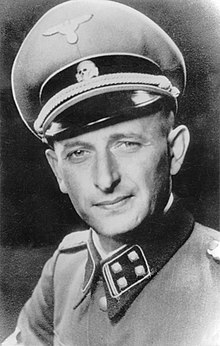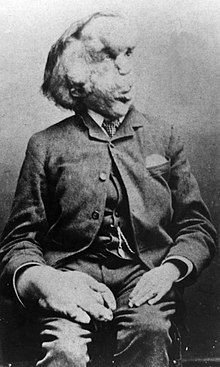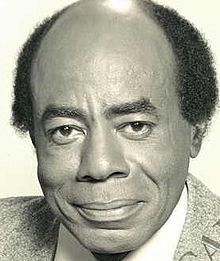April 11 is the 101st day of the year (102nd in leap years) in the Gregorian calendar. There are 264 days remaining until the end of the year.
Holidays
Christian feast day:
- Antipas of Pergamum (Greek Orthodox Church)
- Gemma Galgani
- Godeberta
- Guthlac of Crowland
- George Selwyn (Anglicanism)
- Stanislaus of Szczepanów
- April 11 (Eastern Orthodox liturgics)
Juan Santamaría Day, anniversary of his death in the Second Battle of Rivas. (Costa Rica)
History
In 491, Flavius Anastasius becomes Byzantine emperor, with the name of Anastasius I.
In 1079, Bishop Stanislaus of Kraków is executed by order of Bolesław II of Poland.
In 1241, Batu Khan defeats Béla IV of Hungary at the Battle of Mohi.
In 1512, War of the League of Cambrai: French forces led by Gaston de Foix win the Battle of Ravenna.
In 1544, French forces defeat a Spanish army at the Battle of Ceresole.
In 1689, William III and Mary II are crowned as joint sovereigns of Great Britain.
In 1713, War of the Spanish Succession (Queen Anne’s War): Treaty of Utrecht.
In 1727, Premiere of Johann Sebastian Bach‘s St Matthew Passion BWV 244b at the St. Thomas Church, Leipzig
In 1809, Battle of the Basque Roads Naval battle fought between France and the United Kingdom
In 1814, The Treaty of Fontainebleau ends the War of the Sixth Coalition against Napoleon Bonaparte, and forces him to abdicate unconditionally for the first time.

Born April 11th in 1819, Margaret Lea Houston (Dies December 3, 1867) was First Lady of the Republic of Texas, First Lady of the state of Texas, and a founding member of Concord Baptist Church in Grand Cane. She was a poet and an accomplished musician. Her influence on husband Sam Houston persuaded him to give up alcohol and profane language. Margaret gave birth inside the governor’s mansion to the youngest of their eight children, as angry mobs gathered outside in response to her husband’s opposition to Texas signing the Ordinance of Secession of the Civil War. He was removed from office for refusing to swear loyalty to the Confederacy. Their eldest son joined the Confederate army and was left for dead on the battlefield at Shiloh, saved by a Union Army clergyman who found a Bible from Margaret in his pocket. Sam Houston died of illness before the end of the war, as Margaret sat by his bed reading to him from the 23rd Psalm. She became the keeper of his legacy and opened his records to a trusted biographer. When she died of yellow fever, Margaret could not be buried with her husband in a public cemetery for fear of contamination, and was instead interred on private family property.
In 1856, Battle of Rivas: Juan Santamaría burns down the hostel where William Walker‘s filibusters are holed up.
In 1862, Union forces captured the Confederate-held Fort Pulaski after a 30-hour bombardment.
In 1863, Confederate General James Longstreet besieged the town of Suffolk with 20,000 men between April 11 and May 4, 1863 while gathering supplies for the Army of Northern Virginia. During the siege, General George Pickett would slip away to meet with his sweetheart and soon-to-be wife LaSalle (Sallie) Ann Corbell of Nansemond County. Longstreet was ordered to disengage by General Robert E. Lee and rejoin the Army of Northern Virginia at Fredericksburg. Two months later on July 3, the Union forces abandoned the town for strategic reasons, as decided by General John Adams Dix.
In 1865, Several days after the end of the Civil War, President Lincoln made a speech about rebuilding the South moving the nation forward. In attendance that day was John Wilkes Booth, who listened to that same speech. Lincoln promoted voting rights for blacks, an incensed Booth changed his plans and became determined to assassinate the president. It turned out that this was Lincoln’s last speech because he was assassinated just days later.
In 1868, Former Shogun Tokugawa Yoshinobu surrenders Edo Castle to Imperial forces, marking the end of the Tokugawa shogunate.
In 1873, Edward Canby, American general (b. 1817) was killed. He was a career United States Army officer and a Union general in the American Civil War, Reconstruction era, and the Indian Wars. He was assassinated at a peace talk with the Modoc in Northern California. He was the only United States general to be killed during the later wars.
In 1876, The Benevolent and Protective Order of Elks is organized.
In 1881, Spelman College is founded in Atlanta, Georgia as the Atlanta Baptist Female Seminary, an institute of higher education for African-American women.
In 1888, The Concertgebouw in Amsterdam is inaugurated.
In 1890, Joseph Merrick, English man with severe deformities (b. 1862) dies. He was sometimes incorrectly referred to as John Merrick, was an English man with severe deformities who was exhibited as a human curiosity named the Elephant Man. He became well known in London society after he went to live at the London Hospital. Merrick was born in Leicester, Leicestershire and began to develop abnormally during the first few years of his life. His skin appeared thick and lumpy, he developed enlarged lips, and a bony lump grew on his forehead. One of his arms and both of his feet became enlarged and at some point during his childhood he fell and damaged his hip, resulting in permanent lameness. When he was 10, his mother died, and his father soon remarried. Merrick left school at 13 and had difficulty finding employment. Rejected by his father and stepmother, he left home. In late 1879, Merrick, aged 17, entered the Leicester Union Workhouse.
In 1884, after four years in the workhouse, Merrick contacted a showman named Sam Torr and proposed that Torr should exhibit him. Torr agreed and arranged for a group of men to manage Merrick, whom they named the Elephant Man. After touring the East Midlands, Merrick traveled to London to be exhibited in a penny gaff shop on Whitechapel Road which was rented by showman Tom Norman. Norman’s shop, directly across the street from the London Hospital, was visited by a surgeon named Frederick Treves, who invited Merrick to be examined and photographed. Soon after Merrick’s visits to the hospital, Tom Norman’s shop was closed by the police, and Merrick’s managers sent him to tour in Europe.
In Belgium, Merrick was robbed by his road manager and abandoned in Brussels. He eventually made his way back to London; unable to communicate, he was found by the police to have Dr. Treves’s card on him. Treves came and took Merrick back to the London Hospital. Although his condition was incurable, Merrick was allowed to stay at the hospital for the remainder of his life. Treves visited him daily, and the pair developed quite a close friendship. Merrick also received visits from the wealthy ladies and gentlemen of London society, including Alexandra, Princess of Wales.
Aged 27, Merrick died on 11 April 1890. The official cause of death was asphyxia, although Treves, who dissected the body, said that Merrick had died of a dislocated neck. He believed that Merrick—who had to sleep sitting up because of the weight of his head—had been attempting to sleep lying down, to “be like other people”.
In 1898, President William McKinley turned the matter of Spain’s over to Congress. He did not ask for war, but the pressure for was to great and Congress declared war anyway on April 20, with the addition of the Teller Amendment, which disavowed any intention of annexing Cuba.
In 1906, James Anthony Bailey, American businessman, co-founded Ringling Bros. and Barnum & Bailey Circus (b. 1847) dies. He was born James Anthony McGinnis, was an American circus ringmaster. Orphaned at the age of eight, McGuiness was working as a bellhop in Pontiac, Michigan when he was discovered by Frederic Augusta Bailey (a nephew of circus pioneer Hachaliah Bailey) as a teenager. Bailey gave McGuiness a job as his assistant and the two traveled together for many years. James Anthony eventually adopted Bailey’s surname to become James A. Bailey. Bailey later associated with James E. Cooper and, by the time he was 25, he was manager of the Cooper and Bailey circus. He then met with P.T. Barnum and together they established Barnum and Bailey’s Circus (for which Bailey was instrumental in obtaining Jumbo the Elephant) in 1881.
In 1908, SMS Blücher, the last armored cruiser to be built by the Imperial German Navy, launches.
In 1909, The city of Tel Aviv is founded.
In 1913, The Nevill Ground‘s pavilion is destroyed in a suffragette arson attack becoming the only cricket ground to be attacked by suffragettes.
In 1919, The International Labour Organization is founded.
In 1921, Emir Abdullah establishes the first centralised government in the newly created British protectorate of Transjordan.
In 1921, Iowa became the first state to impose a cigarette tax.
In 1945, World War II: American forces liberate the Buchenwald concentration camp.
In 1951, Korean War: President Harry Truman relieves General of the Army Douglas MacArthur of overall command in Korea.
In 1951, The Stone of Scone, the stone upon which Scottish monarchs were traditionally crowned, is found on the site of the altar of Arbroath Abbey. It had been taken by Scottish nationalist students from its place in Westminster Abbey.
In 1952, The Battle of Nanri Island takes place.
In 1955, The Air India Kashmir Princess is bombed and crashes in a failed assassination attempt on Zhou Enlai by the Kuomintang.
In 1957, United Kingdom agrees to Singaporean self-rule.

In 1959, Satellite Science Fiction was an American science fiction magazine, published from October 1956 to April 1959 by Leo Margulies‘ Renown Publications. It was edited initially by Sam Merwin, then Margulies, and finally Frank Belknap Long. In addition to a handful of short stories, initially each issue ran a full-length novel, including the original version of Philip K. Dick‘s first novel The Cosmic Puppets, and well-received work by Algis Budrysand Jack Vance, though the quality was not always high. Isaac Asimov, Arthur C. Clarke, and L. Sprague de Camp were among the short story contributors. Sam Moskowitz wrote a series of articles on the early history of science fiction for Satellite; these were later to be revised as part of his book Explorers of the Infinite. In 1958 Margulies tracked down the first magazine publication of H.G. Wells‘ The Time Machine from 1894–1895, and reprinted a short excerpt from it that had been omitted by every subsequent printing.

In 1961, The trial of Adolf Eichmann begins in Jerusalem. He was a German-Austrian Nazi SS–Obersturmbannführer (“Senior Assault Unit Leader”) and one of the major organizers of the Holocaust. He was tasked by SS-Obergruppenführer (“Senior Group Leader”) Reinhard Heydrich with facilitating and managing the logistics involved in the mass deportation of Jews to ghettos and extermination camps in Nazi-occupied Eastern Europe during World War II. He was captured by the Mossad in Argentina on 11 May 1960 and subsequently found guilty of war crimes in a widely publicised trial in Jerusalem, Israel. Eichmann was executed by hanging in 1962.
In 1963, Pope John XXIII issues Pacem in terris, the first encyclical addressed to all instead of to Catholics alone.
In 1965, The Palm Sunday tornado outbreak of 1965: Fifty-one tornadoes hit in six Midwestern states, killing 256 people.
In 1968, President Lyndon B. Johnson signs the Civil Rights Act of 1968, prohibiting discrimination in the sale, rental, and financing of housing.
In 1970, Apollo 13 is launched.
In 1972, First edition of the BBC comedy panel game I’m Sorry I Haven’t A Clue is broadcast, one of the longest-running British radio shows in history.
In 1976, The Apple I is created.
In 1977, London Transport‘s Silver Jubilee buses are launched.
In 1979, Ugandan dictator Idi Amin is deposed.
In 1981, A massive riot in Brixton, south London, results in almost 300 police injuries and 65 serious civilian injuries.
In 1987, The London Agreement is secretly signed between Israeli Foreign Affairs Minister Shimon Peres and King Hussein of Jordan.
In 1989, Ron Hextall becomes the first goaltender in NHL history to score a goal in the playoffs.
In 1980, the Equal Employment Opportunity Commission issued regulations specifically prohibiting sexual harassment of workers by supervisors.

In 1984, Soviet Communist Party General Secretary Konstantin U. Chernenko was also named president of the Soviet Union. He was nominated by Politburo member Mikhail S. Gorbachev.
In 1986, Kellogg‘s of Battle Creek, MI stopped its 80-year tradition of tours of the breakfast food plant on this day, saying that company secrets were at risk with spies from other cereal manufacturers.
In 1990, Customs officers in Middlesbrough, England, United Kingdom, say they have seized what they believe to be the barrel of a massive gun on a ship bound for Iraq.
In 1993, Four hundred fifty prisoners rioted at the Southern Ohio Correctional Facility in Lucasville, Ohio, and continued to do so for ten days, citing grievances related to prison conditions, as well as the forced vaccination of Nation of Islam prisoners (for tuberculosis) against their religious beliefs.
In 1994, The White House disclosed that President and Mrs. Clinton had failed to report $6,498 dollars in income that the first lady made in commodities trading in 1980; the couple wrote checks totaling $14,615 in back taxes and interest. The IRS never lets go…..
In 2000, A French anti-racism group files lawsuit against Yahoo! Inc. claiming the Internet giant hosts illegal auctions of Nazi-related paraphernalia.
In 2001, The detained crew of a United States EP-3E aircraft that landed in Hainan, China after a collision with a J-8 fighter, is released.
In 2002, The Ghriba synagogue bombing by al-Qaeda kills 21 in Tunisia.
In 2002, Over two hundred thousand people marched in Caracas towards the Presidential Palace of Miraflores, to demand the resignation of president Hugo Chávez. 19 of the protesters are killed, and the Minister of Defense Gral. Lucas Rincon announces Hugo Chávez resignation on national TV.
In 2006, Iranian president Mahmoud Ahmadinejad announces that Iran has successfully enriched uranium.
In 2007, 2007 Algiers bombings: Two bombings in the Algerian capital of Algiers kill 33 people and wound a further 222 others.
In 2007, Roscoe Lee Browne, American actor and director (b. 1922) dies at age 84 of stomach cancer. He was an American actor and director, known for his rich voice and dignified bearing. Browne was the fourth son of a Baptist minister, Sylvanus S. Browne, and his wife Lovie (née Lovie Lee Usher). Born in Woodbury, New Jersey, Browne first attended historically black Lincoln University in Pennsylvania, where he became a member of Omega Psi Phi fraternity and graduated with a bachelor’s degree in 1946. During World War II, he served in Italy with the Negro 92nd Infantry Division and organised the Division’s track and field team. After the war Browne undertook postgraduate work at Middlebury College, Columbia University and at the University of Florence. A middle-distance runner, he won the Amateur Athletic Union 1,000-yard national indoor championship in 1949. He occasionally returned to Lincoln University between 1946-52 to teach English, French and comparative literature. Upon leaving academia he earned a living for several years selling wine for Schenley Import Corporation. In 1956, he quit his job with Schenley to become a full-time professional actor. In The Cowboys (1972), in a role as a camp cook, he leads a group of young cowhands avenging the death of John Wayne‘s character in the movie.
In 2011, An explosion in the Minsk Metro, Belarus kills 15 people and injures 204 others.
In 2012, An 8.2 magnitude earthquake hits Indonesia, off northern Sumatra at a depth of 16.4 km. A tsunami hits the island of Nias at Indonesia.
In 2014, The city of Jackson discovers it is guilty of failing to contribute $3.3 million in shared sales taxes for education.
In 2015, Surprise, Surprise ….Hillary Clinton confirms she is running for president. Hillary Clinton launched her second bid for the White House on Sunday, ending months of speculation and kicking off her 2016 campaign by heading to Iowa. “I’m running for president,” the former secretary of state, senator, and first lady said via online video and Twitter. “Everyday Americans need a champion, and I want to be that champion.” Clinton, who lost the 2008 Democratic nomination to President Obama, would be the first female president in the nation’s history. She is the commanding frontrunner to win her party’s nomination. [The New York Times]
In 2018, An Ilyushin Il-76 which was owned and operated by the Algerian Air Force crashes near Boufarik, Algeria, killing 257.





